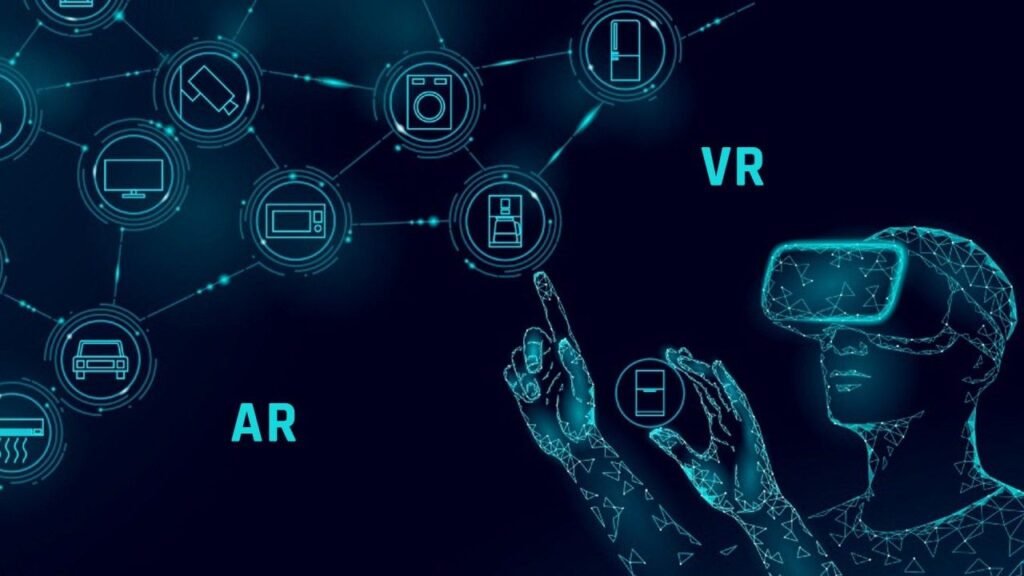Exploring the Frontier: Technology and Innovation Shaping Our Future
In the ever-evolving landscape of technology and innovation, the pace of change is exhilarating. Every day, breakthroughs in various fields reshape how we live, work, and interact with the world. From artificial intelligence to quantum computing, technology is pushing the boundaries of what’s possible and creating opportunities that were once the realm of science fiction.

1. Artificial Intelligence (AI) and Machine Learning
Artificial Intelligence (AI) and Machine Learning (ML) have become central to technological advancement. AI systems are now capable of performing tasks that require human-like intelligence, such as recognizing speech, understanding natural language, and making complex decisions.
- Generative AI: Recent developments in generative AI, like OpenAI’s GPT-4, can create human-like text, generate images, and even compose music. This technology has vast applications in content creation, customer service, and beyond.
- AI in Healthcare: AI is transforming healthcare with predictive analytics, personalized treatment plans, and diagnostic tools. For instance, AI algorithms can analyze medical images more quickly and accurately than human radiologists, leading to earlier detection of conditions.
Tip: Explore how AI can be integrated into various industries to streamline operations and enhance productivity.
2. Quantum Computing
Quantum computing is poised to revolutionize industries by solving problems that are currently intractable for classical computers. Unlike classical bits, quantum bits (qubits) can exist in multiple states simultaneously, offering immense computational power.
- Breakthroughs in Research: Companies like IBM, Google, and Microsoft are making strides in developing quantum processors. These advancements could lead to breakthroughs in cryptography, material science, and complex simulations.
- Real-World Applications: Quantum computing could optimize supply chains, improve drug discovery processes, and solve complex problems in finance and logistics.
Tip: Stay informed about the progress in quantum computing to understand its potential impact on various sectors.

3. 5G and Next-Generation Connectivity
5G technology promises to revolutionize connectivity with faster speeds, lower latency, and the capacity to support a vast number of devices simultaneously.
- Enhanced Mobile Experiences: With 5G, users can expect significantly faster internet speeds and more reliable connections, which will enhance experiences like streaming, gaming, and augmented reality (AR).
- IoT Expansion: The increased bandwidth of 5G will accelerate the growth of the Internet of Things (IoT), enabling smarter cities, more efficient manufacturing processes, and connected devices in our homes.
Tip: Consider how 5G technology can improve the efficiency and capabilities of your personal or business technology.
4. Blockchain and Decentralized Systems
Blockchain technology, the backbone of cryptocurrencies like Bitcoin, offers a decentralized way to record transactions securely and transparently.
- Beyond Cryptocurrency: Blockchain is being explored for applications in supply chain management, digital identity verification, and secure voting systems. Its ability to provide transparency and immutability can enhance trust and security across various sectors.
- Smart Contracts: These self-executing contracts with the terms of the agreement directly written into code are revolutionizing business transactions by automating and enforcing agreements without intermediaries.
Tip: Investigate how blockchain can be used to solve challenges in your industry or streamline processes.
5. Augmented Reality (AR) and Virtual Reality (VR)
AR and VR technologies are transforming how we interact with digital content and the physical world.
- Enhanced User Experiences: AR applications overlay digital information onto the real world, providing interactive experiences in areas like gaming, retail, and education. VR creates immersive environments for training, entertainment, and virtual tourism.
- Practical Applications: From virtual meetings and remote collaboration to immersive training simulations and virtual property tours, AR and VR are expanding the possibilities of how we experience and interact with our surroundings.
Tip: Explore AR and VR applications to see how they can be leveraged for innovation and engagement in your field.

6. Sustainable Technology and Green Innovations
As climate change becomes an increasingly pressing issue, technology is playing a critical role in developing sustainable solutions.
- Renewable Energy: Advances in solar, wind, and battery technologies are making renewable energy sources more efficient and cost-effective. Innovations like solar panels with higher energy conversion rates and next-generation wind turbines are driving the transition to greener energy.
- Eco-Friendly Technologies: From biodegradable materials to energy-efficient appliances, technology is helping to reduce environmental impact and promote sustainability.
Tip: Consider incorporating sustainable practices and technologies into your projects or business to contribute to environmental conservation.
Conclusion
The intersection of technology and innovation is a dynamic and exciting space that promises to shape the future in profound ways. By staying informed about the latest advancements and understanding their potential applications, you can position yourself at the forefront of change and leverage these technologies to enhance your personal and professional life.
As we continue to explore and embrace new technological frontiers, it’s essential to stay curious, adaptable, and open to the possibilities that lie ahead. The future is unfolding rapidly, and the innovations of today are paving the way for a more connected, efficient, and sustainable tomorrow.